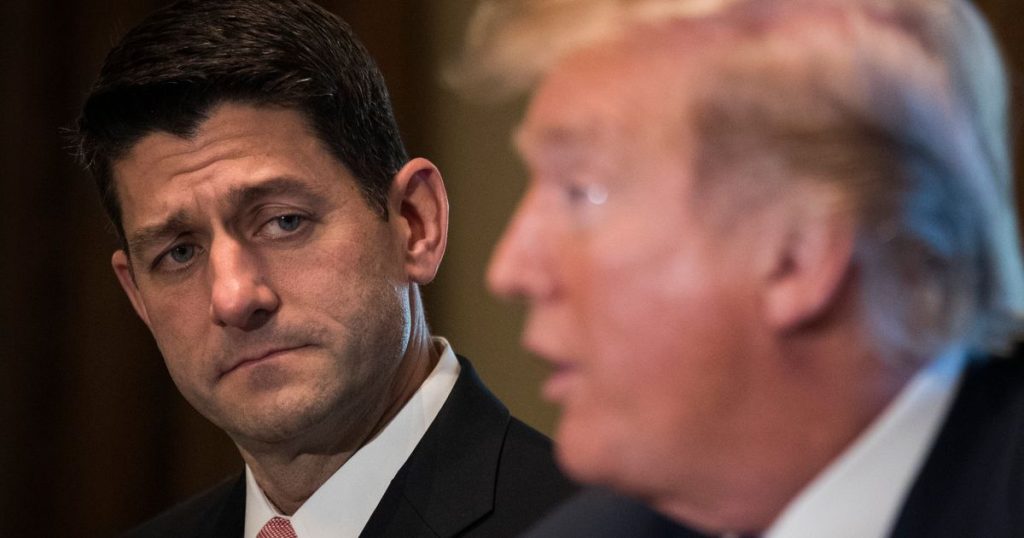Former House GOP speaker Paul Ryan recently spoke out about a potential weak spot for the Republican Party under former President Donald Trump’s influence. He specifically highlighted Trump’s divisive rhetoric and behavior as a potential liability for the party moving forward. Ryan cautioned that aligning too closely with Trump’s controversial statements and actions could ultimately harm Republicans in future elections. This assessment comes as the GOP grapples with internal divisions over how to navigate Trump’s continued influence on the party.
Ryan’s remarks signal a growing concern among establishment Republicans about the impact of Trump’s divisive politics on the party’s electoral prospects. While Trump maintains a strong base of support within the GOP, his polarizing style has alienated many moderate and independent voters. Ryan’s warning serves as a reminder that the party must carefully assess the long-term implications of embracing Trump’s brand of politics. As Republicans look to chart their course in the post-Trump era, they must weigh the potential risks and benefits of aligning with the former president’s combative approach.
The former House speaker’s comments reflect a broader debate within the Republican Party about how to move forward in the wake of Trump’s presidency. Some GOP leaders continue to embrace Trump’s populist message and confrontational style, viewing it as key to energizing the party’s base. However, others, like Ryan, are wary of aligning too closely with Trump and risking further alienating moderate voters. This tension between the party’s establishment wing and its pro-Trump faction underscores the larger challenges facing Republicans as they seek to regain control of Congress and the White House.
Ryan’s warning also highlights the potential electoral consequences of overlooking Trump’s more controversial statements and actions. As the GOP looks to rebuild and expand its coalition, it will need to appeal to a broader range of voters beyond Trump’s base. This will require a strategic approach that balances the need to energize the party’s core supporters with the imperative of appealing to swing voters and independents. By raising concerns about Trump’s divisive politics, Ryan is signaling that the GOP’s path to electoral success may require distancing itself from the former president’s more polarizing tendencies.
Ultimately, Ryan’s comments underscore the complexity of the GOP’s political calculations as it seeks to navigate the post-Trump landscape. The party must carefully weigh the potential risks and rewards of aligning with Trump’s brand of politics, recognizing that his influence remains potent within the Republican base. At the same time, Republicans must also consider the broader electoral implications of embracing Trump’s divisive rhetoric and behavior. As the party looks ahead to upcoming elections, it will need to strike a delicate balance between energizing its base and appealing to a diverse electorate. How the GOP navigates these challenges will likely shape the party’s prospects in the years to come.


